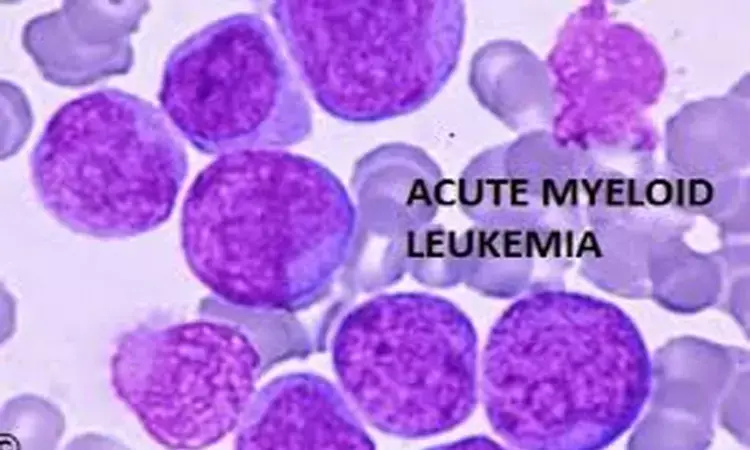- Home
- Medical news & Guidelines
- Anesthesiology
- Cardiology and CTVS
- Critical Care
- Dentistry
- Dermatology
- Diabetes and Endocrinology
- ENT
- Gastroenterology
- Medicine
- Nephrology
- Neurology
- Obstretics-Gynaecology
- Oncology
- Ophthalmology
- Orthopaedics
- Pediatrics-Neonatology
- Psychiatry
- Pulmonology
- Radiology
- Surgery
- Urology
- Laboratory Medicine
- Diet
- Nursing
- Paramedical
- Physiotherapy
- Health news
- Fact Check
- Bone Health Fact Check
- Brain Health Fact Check
- Cancer Related Fact Check
- Child Care Fact Check
- Dental and oral health fact check
- Diabetes and metabolic health fact check
- Diet and Nutrition Fact Check
- Eye and ENT Care Fact Check
- Fitness fact check
- Gut health fact check
- Heart health fact check
- Kidney health fact check
- Medical education fact check
- Men's health fact check
- Respiratory fact check
- Skin and hair care fact check
- Vaccine and Immunization fact check
- Women's health fact check
- AYUSH
- State News
- Andaman and Nicobar Islands
- Andhra Pradesh
- Arunachal Pradesh
- Assam
- Bihar
- Chandigarh
- Chattisgarh
- Dadra and Nagar Haveli
- Daman and Diu
- Delhi
- Goa
- Gujarat
- Haryana
- Himachal Pradesh
- Jammu & Kashmir
- Jharkhand
- Karnataka
- Kerala
- Ladakh
- Lakshadweep
- Madhya Pradesh
- Maharashtra
- Manipur
- Meghalaya
- Mizoram
- Nagaland
- Odisha
- Puducherry
- Punjab
- Rajasthan
- Sikkim
- Tamil Nadu
- Telangana
- Tripura
- Uttar Pradesh
- Uttrakhand
- West Bengal
- Medical Education
- Industry
Metoclopramide inhibits proliferation of leukemia stem cells, finds study

Chronic myeloid leukemia (CML) results from a degeneration of the hematopoietic stem cells (leukemia stem cells), thereby leading to the uncontrolled formation of specific white blood cells, the so-called granulocytes. Research work at the Department of Medical Oncology at the Inselspital, Bern University Hospital and the University of Bern focused therefore on identifying the signaling pathways and control mechanisms of the leukemia stem cell. A promising approach is provided by working with MPR, an anti-emetic medication commonly used to treat nausea and vomiting.
Specific blocking of leukemia stem cell proliferation with metoclopramide
The exact role of the surface molecule CD93 (cluster of differentiation 93) in controlling the proliferation of leukemia stem cells was analyzed and documented, initially in animal experiments and subsequently in experiments with leukemia stem cells from patients. This revealed a distinct regulatory function of CD93 in leukemia stem cells. To begin with, the effect was demonstrated in vivo in animal experiments. It was further shown that the control function only applies to leukemia stem cells, not to normal hematopoietic stem cells. Furthermore, it was demonstrated that the anti-emetic MPR interrupts the signaling pathway that stimulates cell proliferation of leukemia stem cells in vitro and also, in animal experiments, visibly improves survival with CML by blocking the proliferation of leukemia stem cells. This provides strong evidence that MPR may also show positive results in treating CML in humans.
Extensive research
The study presented in this publication involved exceptionally extensive research. This is also true with regard to the interdisciplinary teams participating from the Department of Medical Oncology, the Department for Biomedical Research, the Institute of Cell Biology and the Department of Orthopedic Surgery and Hematology at the Bern University Hospital and the University of Bern. Prof. Dr. sc. nat. Carsten Riether explains: "In order to develop a new, promising approach to combat CML, contributions from numerous disciplines were necessary and different research approaches had to be pursued. In a screening procedure, we elicited the candidate Metoclopramide and were subsequently able to demonstrate its effect on the CD93 signaling pathway in both in-vitro and in-vivo experiments." The research infrastructure in Bern is optimally designed for such major projects. The expertise in fundamental research at the Department for Biomedical Research (DBMR) and in clinical research at the University Hospital are closely linked and can rapidly produce sound results.
What are the next research activities?
The results have pinpointed CD93 as a specific regulator responsible for leukemia stem cell proliferation. This identifies a promising pathway to targeting leukemia stem cells. Further studies must now prove the clinical effect and relevance. Prof. Adrian Ochsenbein outlines the following picture: "Thanks to this pool of expertise, we were able to identify Metoclopramide as a promising candidate for CML therapy. And with the broad-based research infrastructure and our excellent national and international network, we are hopefully in a position to present clinical results within a reasonable timescale.
Hina Zahid Joined Medical Dialogue in 2017 with a passion to work as a Reporter. She coordinates with various national and international journals and association and covers all the stories related to Medical guidelines, Medical Journals, rare medical surgeries as well as all the updates in the medical field. Email: editorial@medicaldialogues.in. Contact no. 011-43720751
Dr Kamal Kant Kohli-MBBS, DTCD- a chest specialist with more than 30 years of practice and a flair for writing clinical articles, Dr Kamal Kant Kohli joined Medical Dialogues as a Chief Editor of Medical News. Besides writing articles, as an editor, he proofreads and verifies all the medical content published on Medical Dialogues including those coming from journals, studies,medical conferences,guidelines etc. Email: drkohli@medicaldialogues.in. Contact no. 011-43720751


